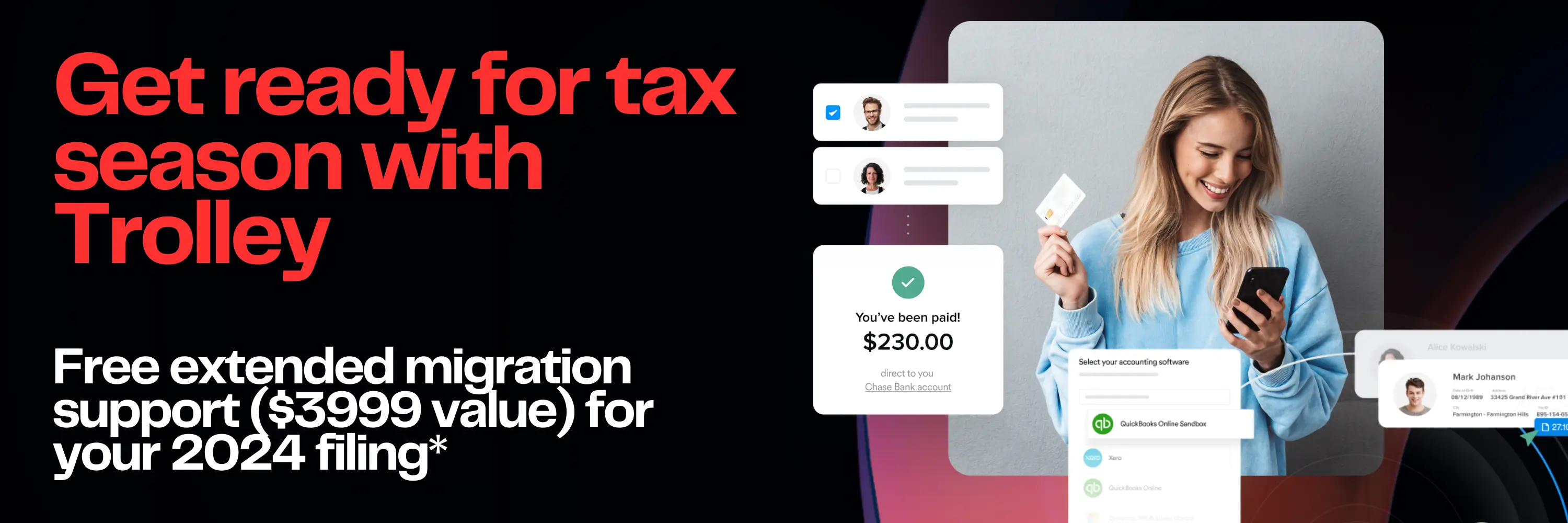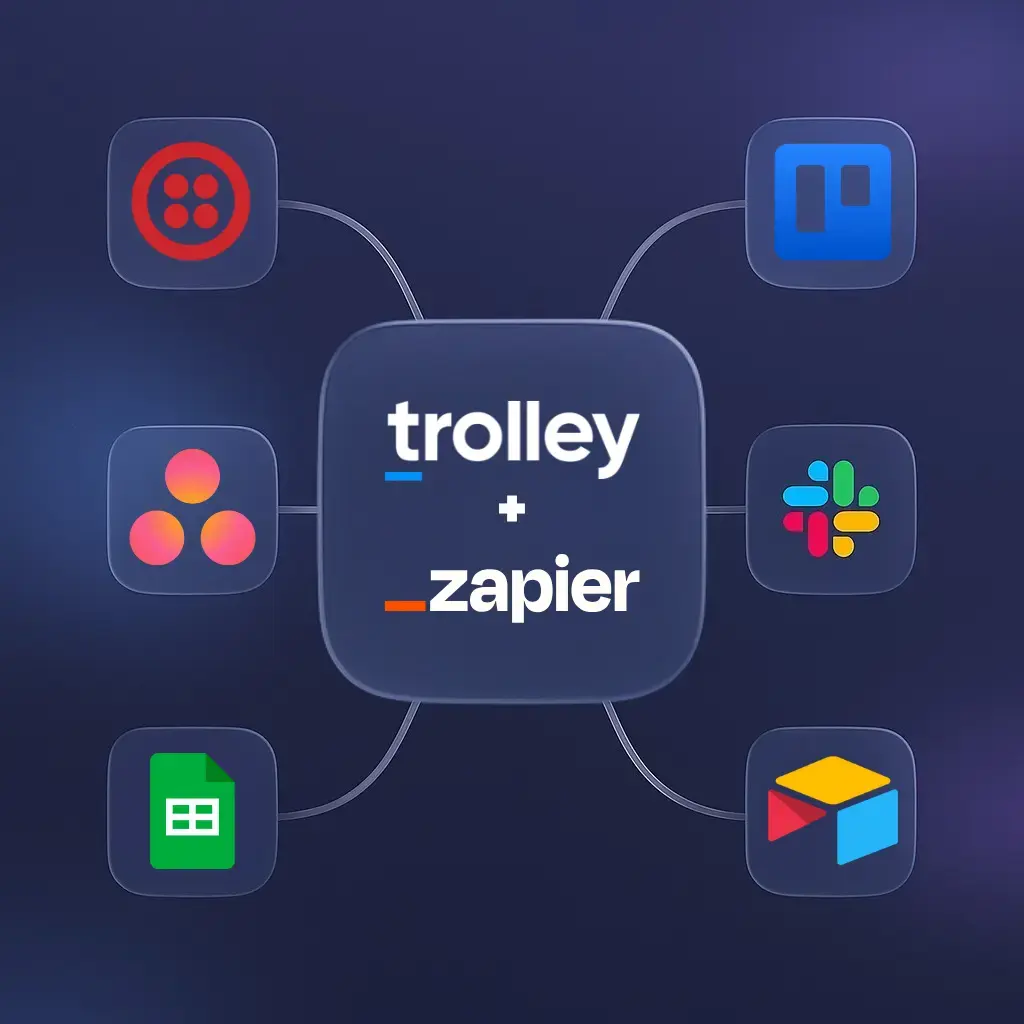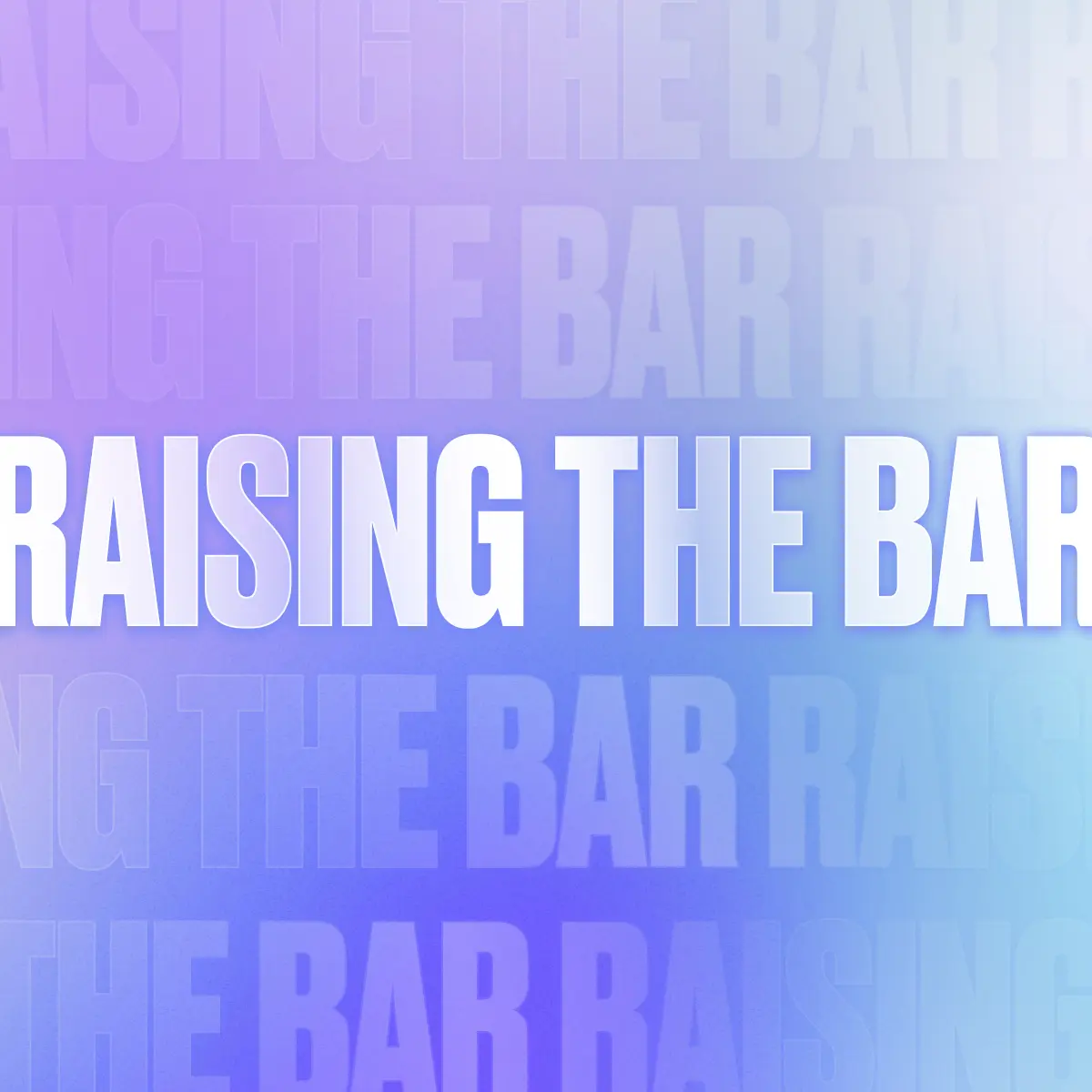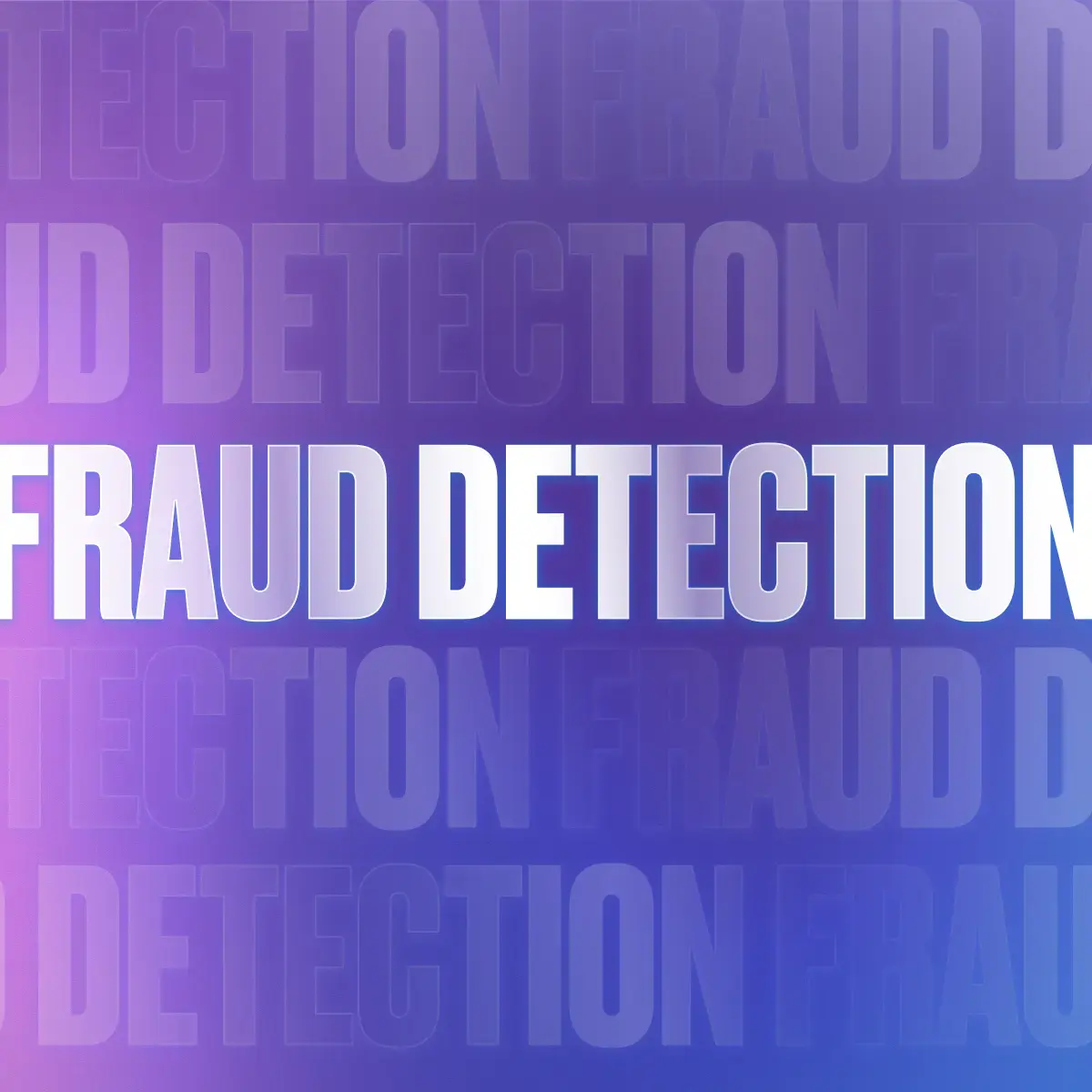11/22/2023 update: The IRS has announced another delay of its Form 1099-K threshold changes. For calendar year 2023, with reporting due in January 2024, the reporting threshold for TPSOs remains at $20,000 in gross amount of aggregate payments and 200 transactions.
The IRS plans to propose a $5,000 reporting threshold for the following year, with the aim of eventually working towards the $600 threshold. This change does not affect state reporting thresholds—many of which are already $600.
Due to significant changes in tax reporting made in the American Rescue Plan Act of 2021, those platforms that pay out funds to creators, freelancers, or sellers have a new concern, Form 1099-K. Formerly only issued to earners of $20,000 or more on third party networks (keep reading for the definition), almost 100% of their US-based earners will need to receive a 1099-K for payments made to them in 2024 and moving forward.
Form 1099-K is an IRS tax form used to report payments processed via debit and credit cards and third party network transactions. Extremely important for businesses and participants of the internet economy, if your company receives electronic payments on behalf of the sellers of goods or services, you’ll want to be aware of form 1099-K and recent changes surrounding the threshold for producing and filing this tax form.

This article covers
What is a 1099-K?
Form 1099-K (Payment Card and Third Party Network Transactions) is an informational return, a tax form produced by anyone processing payments for others. Services that process transactions or third party vendors that issue payments must complete and file form 1099-K.
Credit & Debit Cards
Any business that accepts payment by credit or debit cards will likely receive a 1099-K from their card processor or merchant processing companies. In these cases, no minimum number of transactions or gross transaction amount is needed to trigger a 1099-K.
What are Third Party Networks?
If your business accepts payment cards on behalf of another person/business, you are facilitating third-party network transactions.
Note: There is a minimum payment threshold for producing a 1099-K for each payee; however, due to a change in the rules that has been passed and will come into enforcement for the tax year 2024, this limit will decrease significantly.
Many individuals and vendors in the creator economy utilize third-party networks for payment processing. These companies have established relationships with the payment processor and accept payments on their partner’s behalf. Companies like Square, Paypal, and Stripe all fall into this category, and they have allowed more small businesses to open and operate than ever.
What are TPSOs?
A third-party settlement organization (TPSO) is a central organization that connects buyers and sellers of goods or services using third-party network transactions. TPSOs have contractual obligations to guarantee payments to the participating payees.
Are Online Marketplaces TPSOs?
Many online marketplaces and platforms that aggregate creators and gig workers qualify as TPSOs
For example, Etsy, eBay, Airbnb, UpWork, and other similar platforms allow many people to market their goods and services and enable customers to pay for services through their platform. Therefore, these are all TPSOs, and they will need to produce 1099-Ks for people who have been paidthrough the platform.
An Overview of Form 1099-K
As an informational return, the payment processor is responsible for issuing a copy of the completed form to the person/company that payments were made to and then reporting those earnings to the IRS.
The primary information conveyed on Form 1099-K is the gross reported amount of payment transactions. The IRS defines the reportable amount as “the total unadjusted dollar amount of aggregate payment transactions for each participating payee.”
The information on the 1099-K is informational and only outlines gross transactions. It does not provide a breakdown of adjustments such as credits or refunds. It is the responsibility of the tax filer to ensure their records reflect the information conveyed on IRS Form 1099-K.
Additionally, a vendor can receive more than one 1099-K if they use multiple payment processors during the tax year.
For example: WatchCo sells custom timepieces on a well-known online jewelry marketplace. The marketplace processes credit card payments on WatchCo’s behalf and also allows WatchCo to accept payments through PayPal. The Marketplace would need to provide a 1099-K to WatchCo for all the credit card transactions they processed, and PayPal would produce a second 1099-K to WatchCo for all PayPal transactions.
1099-K Reporting Requirements
In the past, third party networks were only required to issue a 1099-K to their customers who generated more than $20,000 in gross transactions AND conducted more than 200 total transactions.
Given the increased number and volume of transactions occurring through such platforms in recent years, these platforms were identified as an area for increased tax revenue by the IRS. Changes to reporting enacted by the American Rescue Plan Act of 2021 make the threshold for reporting 1099-Ks much lower moving forward:
- To trigger a 1099-K, the minimum threshold of total payments processed in a year has been reduced from $20,000 to $600.
- 2022 and 2023 are being treated as “transition years” for the reduced reporting threshold. Effectively for tax year 2023, being reported in Jan 2024, the threshold remains at $20,000 and 200 transactions.
- The IRS plans to propose a $5,000 reporting threshold for the following year, with the aim of eventually working towards the $600 threshold.
- Also, there is no longer a minimum number of transactions required.
The IRS has provided an overview and answers frequently asked questions regarding the new requirements.
Note: This may mean that you need to issue many more 1099-K forms than you have in the past. Therefore, it is essential to have creators, sellers, and any others whom you may process payments for complete and return form W-9, Request for Taxpayer Identification Number and Certification ASAP. This will give you all the information required to prepare their 1099-K for 2024.
1099-K Filing Deadlines
If you need to issue a 1099-K, you need to file the form with the IRS electronically or on paper by Feb 28th. You will also need to provide the recipient (your vendor) with the payee statement (their copy of the 1099-K) by January 31st.
If an organization fails to submit Form 1099-K on time, the IRS may assess penalties or fines. Unfortunately, there are no automatic extensions for filing.
To request an extension for filing due to hardship, you will need to request an extension by submitting Form 8809 to the IRS.
NOTE: The IRS mandates that if you want to email documents, the recipient needs to have consented to receive the form via email, and the consent must have been sent through that same medium. So, emailing Form 1099-K requires an email from your vendor saying they authorize email as a method of delivery.
The IRS provides more detailed instructions in their General Instructions for Certain Information Returns guide.
A Quick Review of Other 1099 forms
If you need to issue 1099-Ks, a few other similar tax forms likely exist in your world. To prevent potential confusion later, it is essential to understand the differences between these forms:
1099-NEC
IRS Form 1099-NEC (Nonemployee Compensation) is used to report non-employee income. As of 2020, this has replaced the 1099-MISC (Miscellaneous Income) as the primary document to report money paid directly to contractors, consultants, and freelancers.
This is different from how a 1099-K is used. With 1099-NEC work, you work directly with a contractor, without a third party network facilitating the work.
1099-MISC
The 1099-MISC was previously the catch-all for income not paid directly to employees. The IRS had required payers to file this form for freelancers, contractors, consultants, prize winners, lawyers, and much more. Since the revisions and reintroduction of the 1099-NEC, the 1099-MISC has taken a bit less prevalent of a role. The change aims to simplify filing requirements and deadlines.
The 1099-MISC is now filed primarily when an organization has paid royalties, rent, or fees to an attorney.
Summing It All Up
IRS Form 1099-K (Payment Card and Third Party Network Transactions) is a tax form that accounts for payments received through third party networks, debit cards, and credit cards.
With some major changes coming, it is vital to have a plan to manage the increased number of 1099-Ks that you may be required to produce. Start planning early and be sure to collect W-9s for all people you will pay moving forward.
We welcome you to come back and refer to this guide on form 1099-K whenever you need it!
Simplify contractor tax compliance with Trolley
Trolley was built to make taxes easy for businesses and the people they pay. From automated W-8 & W-9 collection to the distribution of end-of-year IRS forms, Trolley takes the hassle out of 1042-S & 1099s so you can focus on what you do best.
See Trolley Tax in action: Take the Trolley Tax tour
Book a demo of Trolley’s tax features today >
This article is intended for educational and informational purposes only. Through the publication of this article, Trolley is not offering any legal, taxation, or business advice. We strongly encourage each reader to consult with their relevant lawyer, accountant, or business advisors with respect to the content of this post. Trolley assumes no liability for any actions taken based on the content of this or other articles.







